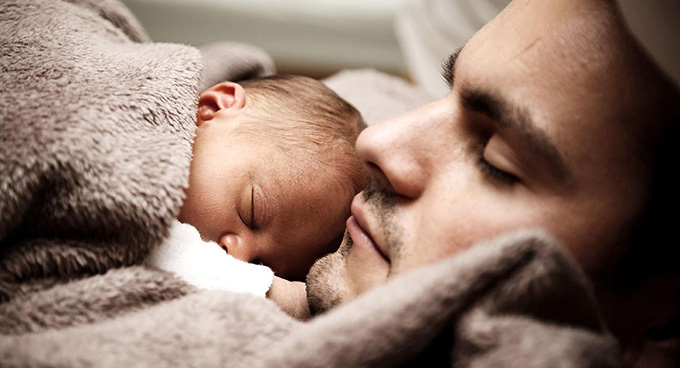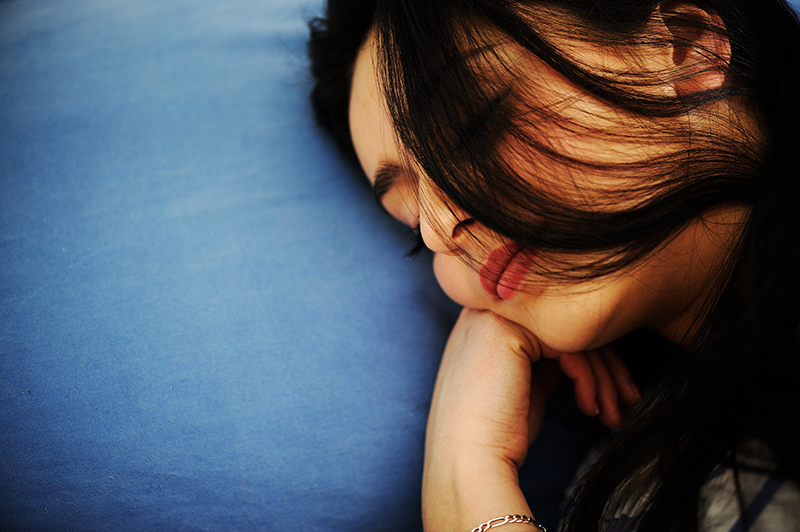The importance of sleep and why we need it
We all take sleep for granted until we have problems with it and then we quickly remember how desirable a good night’s sleep is. The need to sleep is a fundamental human given and it is important for teachers, psychotherapists, employers and others to know something about it,if they are to support those they work with effectively.
This is because all human abilities (like paying attention, memory recall and learning) are made worse by poor sleep and there is a close relationship between sleep and many psychological conditions — for example, depression, anxiety and psychosis. Whenever people seem to be having difficulties in their life always, they are likely to be struggling with their sleep patterns.
The puzzle of sleeping
It can seem surprising that human beings, who can be so full of life, energy, plans and activities, can, at a certain point in every 24 hours, disengage from everything, lie down and apparently become oblivious to the outside world for up to eight hours. (We spend up to one-third of our lives asleep.) All creatures when asleep are vulnerable to attack since we are no longer aware of what is going on around us and are in no position to defend ourselves. Yet all mammals, birds and even cold-blooded reptiles sleep so there must be good reasons for it.

Why do we need sleep?
Sleep scientists now know a lot more about this seemingly mysterious state. There are different stages, divided into REM (rapid eye movement) and non-REM sleep, which we cycle through several times every night.
The first three stages are non-REM and together usually last for about 90 minutes after we first fall asleep.
Stage 1 is the period when we are dropping off to sleep.
Stage 2 is when we consolidate memories and learnings from the previous day.
Stage 3 is deep sleep (also known as slow-wave sleep). It is a time of physical healing and growth for animal organisms, a recuperative stage where the mind/body system rebuilds itself after a hard day surviving in the world. Substances ingested during the awake period are synthesized into the complex proteins of living tissue; growth hormones are secreted to assist with the healing of muscles and repairing general wear and tear in tissues; glial cells (neurones in the brain) are refreshed with sugars to restore the brain with energy; the immune system is boosted; waste products are removed; and much more.

The final stage in the cycle is REM sleep. During this time large amounts of the brain’s energy reserves are expending on dreaming, so dreaming is clearly performing a very important function. Brain wave patterns measured by an electroencephalogram (EEG) during sleep are similar to waking brain-wave patterns, which means something significant is going on. REM sleep occupies about 25 per cent of a healthy adult’s sleep time and dreaming in this state is the deepest trance state known. In newborns and foetuses, REM sleep is the dominant form of sleep and is in some way connected to the programming into us of instincts.1
Most deep sleep takes place in the first three to four hours of sleep, while phases of REM sleep get longer in the last four hours of sleep.
Sleep problems
Sleep problems affect every age group and, with the rapid changes in modern living, are taking an increasing toll on our mental and physical health. Studies across the world have shown that from 10 to 30 per cent of people suffer from it. It is particularly common in older adults, females, and people suffering poor mental and/or physical health.2
In much older people, REM sleep decreases to about 20 per cent of sleep time and the time spent in deep sleep shortens. Older people also wake up more frequently, or may suffer from insomnia because of an increased likelihood of medical complications, and often catnap during the day because of not getting such good quality sleep during the night; however, they still require the same overall amount of sleep. Using too much medication is also a common cause of insomnia, especially in the elderly.
For millions more people the body’s need to have an appropriate amount of good quality sleep is frequently compromised to meet their perceived need to have more ‘awake’ time. If they knew the likely price, they would give an adequate night’s sleep a much higher priority.
Sleep is much more than time out from busy schedules; it is essential to the maintenance of physical and psychological health.
Sleep and healing
We sleep more when we are sick with an infection or develop a fever. When our temperature rises, our organs work more quickly, antibodies are synthesised more rapidly and antibiotics are taken up more quickly. It seems that the high temperature may kill off certain microbes.
Even when we are asleep without a fever, our immune function works harder than when we are awake. This explains why many groups of people who are prone to sleep deprivation suffer more illness and infection than the general population. And why people suffering depression and stress because of the death of a partner are more prone to serious ill-health and more likely than others to die prematurely.
Sleep and accidents
The emotional aspects of sleep are also important; the National Sleep Foundation in the USA reports that people with chronic insomnia are more likely than others to develop several kinds of psychiatric problems, particularly anxiety and depression.2
Even temporary sleep loss can impair our ability to concentrate, cope with minor irritations and accomplish tasks, all of which can put a strain on our relationships. When we lose sleep, we, and those around us, are at high risk from accidents at work and on the road. The Royal Society for the Prevention of Accidents has shown that tiredness may contribute to up to 20 per cent of road accidents.3
The medical profession, of course, also suffers from the effects of sleepiness, with the adverse effects on performance long recognised.4 Perhaps it is not so surprising, then, that research shows that many accidents, mistakes and bad decisions are so often caused by people who have too little sleep.
The importance of sleep quality
Many people, however, think they sleep poorly when, in fact, their quality of sleep is perfectly adequate. GP and human givens practitioner Dr Andrew Morrice recommends asking yourself, “Once you have woken up in the morning, do you feel refreshed and ready for the day?”5 Even if you think you have woken and lain awake for long periods during the night, if you are ready to get going in the morning, you have probably slept much better than you thought. Whereas, if you wake up feeling foggy, still tired, anxious, depressed or just generally not good, you are not getting sufficient quality sleep.
Following good ‘sleep hygiene’ advice, such as avoiding activities that promote wakefulness (eg scrolling through social media before bedtime), eating and drinking sensibly and ensuring you are not too warm or cold in bed, can improve sleep. However, you might find it helpful to seek help from an effective psychotherapist for insomnia if you spend a lot of time worrying; suffer from depression; are under a lot of stress; or have experienced severe childhood adversity which has had lasting impact, including often leading to conditions such as fibromyalgia and chronic pain that interfere with good sleep. No amount of good sleep hygiene can help sufficiently if the psychological component of poor sleep is not addressed.
Find out more about the importance of the ‘REM State’ >
References
1. Jouvet, M. (1967) Mechanisms of the states of sleep. A neuro-pharmacological approach. Presented at the 45th annual meeting of, and published by, the Association for Research in Nervous and Mental Disease, 45, 86–126. New York.
2. Bhaskar S, Hemavathy D, Prasad S (2016). Prevalence of chronic insomnia in adult patients and its correlation with medical comorbidities. Journal of Family Medicine and Primary Care, 5, 4, 780–84.
3. The Royal Society for the Prevention of Accidents (2020). Road Safety Factsheet: driver fatigue. https://www.rospa.com/media/documents/road-safety/driver-fatigue-factsheet.pdf
4. Ramsay, M A (2000). Physician fatigue. Proc (Bayl Univ Med Cent, 13, 2, 148–50; Parker, J B R (1987). The effects of fatigue on physician performance – an underestimated cause of physician impairment and increased patient risk. Canadian Journal of Anaesthesia, 34, 489–95.
5 Morrice, A (2022). Why sleep matters even more than we think. Human Givens, 29, 2, 13–18.

